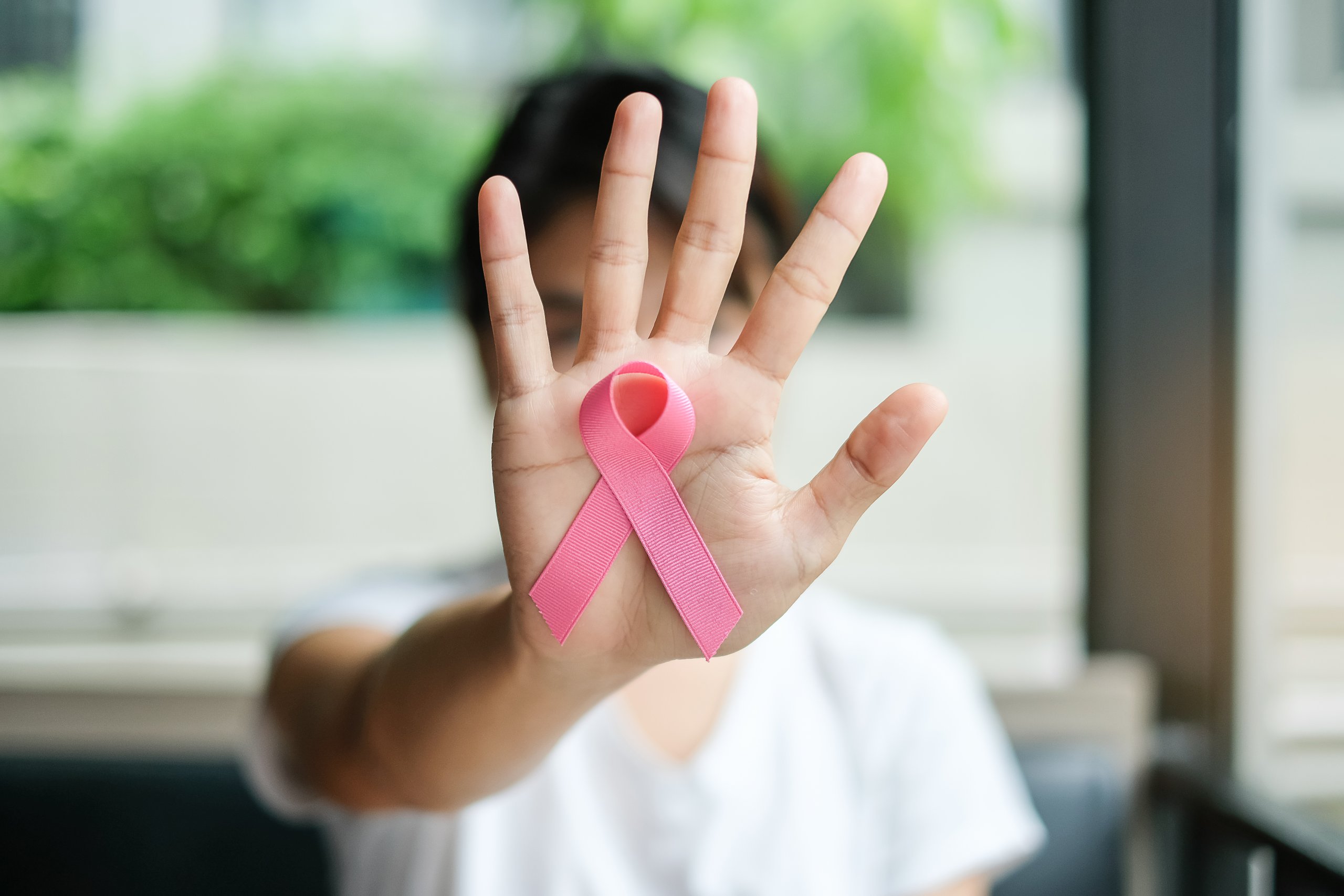Taking Prescribed Medication After Initial Treatment Can Help Offset Recurrence
- Nearly half (40%) of breast cancer patients do not take their prescribed endocrine (also called hormone) therapy after their initial treatment, according to a study published in the Journal of Clinical Oncology.
- “Endocrine therapy has significant benefits in reducing the risk of breast cancer recurrence and improving breast cancer survival,” Dr. Eleonora Teplinsky, head of Breast Medical Oncology at Valley Health System, tells SurvivorNet. Endocrine therapy blocks hormones that feed cancer cells.
- The researchers pointed out that focusing more on endocrine therapy side effects management led to fewer patients taking their medications as prescribed. Comparatively, an added focus on lower medication costs had a greater impact on patients taking their medications.
- Endocrine therapy is used for hormone receptor-positive cancers, meaning the cancer needs estrogen and/or progesterone to grow. These types of cancers are the most common types of breast cancers. It works by driving the estrogen levels down or by blocking the ability of estrogen to interact with the estrogen receptor on the cancer cell.
- The side effects of hormone or endocrine therapy can mimic menopause which may include sleep disturbances, hot flashes, night sweats, and cessation of periods. Other side effects of endocrine or hormone therapy drugs may also include bone or joint pain, nausea or vomiting, fatigue, and loss of appetite.
Nearly half of breast cancer patients prescribed medication after initial treatment stop taking their medicine early, and some take it less frequently than they ought to. These medicines tend to help offset the chance of recurrence and improve overall survival. These startling statistics were published in the Journal of Clinical Oncology by researchers at the University of Colorado.
“Endocrine therapy has significant benefits in reducing the risk of breast cancer recurrence and improving breast cancer survival,” Dr. Eleonora Teplinsky, head of Breast Medical Oncology at Valley Health System, tells SurvivorNet. Endocrine therapy (also called hormone therapy) blocks hormones that feed cancer cells.
Read More
“Some patients discontinue endocrine therapy at an earlier point or may not be adherent to the medication. There is a clear need for effective interventions to increase adherence,” Dr. Teplinksy tells SurvivorNet.
Dr. Teplinksy adds that focusing on “medication costs” has the most significant influence on breast cancer patients. Although cost was the biggest factor in women taking their recommended medication, there are benefits to helping patients cope with the side effects of endocrine therapy, which can act as a deterrent to adherence.
“Research into novel ways and methods to better manage endocrine therapy toxicity and personalization of endocrine therapy has the opportunity to increase adherence as well,” Dr. Teplinksy adds.
RELATED: New Option: How The Drug Kisqali and Endocrine Therapy Work For Hard-To-Treat Breast Cancers
Expert Resources on Breast Cancer Treatmets
- Hormone Therapies for Breast Cancer: Aromatase Inhibitor
- Hormone Therapies for Breast Cancer: mTOR Inhibitors
- Hormone Therapy for Breast Cancer
- Treating Metastatic Hormone Receptor-Positive Breast Cancer
- Is a Preventative Mastectomy Right for Me?
- Implant Reconstruction After a Mastectomy: The Options
- Benefits of Neoadjuvant Chemotherapy
Understanding Hormone or Endocrine Therapy in Breast Cancer
Hormone therapy (also called endocrine therapy) is used for hormone receptor-positive cancers. These types of cancers are the most common types of breast cancers. Hormone receptor-positive means the cancer or tumor needs the hormones estrogen and/or progesterone to grow and flourish.
Endocrine therapy works by driving the estrogen levels down or blocking the estrogen’s ability to interact with the estrogen receptor on the cancer cell.
WATCH: Understanding the hormone therapy drug Tamoxifen.
Tamoxifen is a type of hormone therapy drug used to treat breast cancer. It is also used to prevent breast cancer among women who are at high risk for breast cancer because of family history.
Other hormone therapies may include aromatase inhibitors. These drug treatments block the activity of the aromatase enzyme and, therefore, stop estrogen production. This helps slow down the growth of tumor cells sensitive to estrogen.
Examples of aromatase inhibitors include anastrozole (Arimidex), letrozole (Femara), and exemestane (Aromasin). All of these are in the form of pills that are taken once a day. Many women don’t feel any side effects when taking these drugs, but some may experience hot flashes, joint stiffness, or achiness.
WATCH: Understanding aromatase inhibitors.
It is worth noting that Tamoxifen has notable side effects, many of which mimic menopause.
For women who have been diagnosed with breast cancer, patients are typically put on the Tamoxifen pill for five to 10 years, and there is evidence that taking it for ten years is more effective than taking it for five. In addition, it’s a treatment that, when taken alone or in combination with chemotherapy, reduces the chance of having breast cancer spread.
What are the side effects of endocrine therapy, and how can it be managed?
As previously mentioned, the side effects of hormone or endocrine therapy can mimic menopause.
“Menopause means different things to different people. The average experience begins with sleep disturbances, hot flashes, night sweats, and cessation of periods. The actual medical definition of menopause is more than twelve months of no periods,” Cedars-Sinai Medical Center OB/GYN and oncologist Dr. Bobbie J. Rimel explains to SurvivorNet.
Depending on the endocrine or hormone medication, each one may have its own side effects. According to the National Cancer Institute, typical side effects for certain types of hormone therapy drugs may include:
- Bone pain
- Joint pain
- Loss of appetite
- Nausea and/or vomiting
- Fatigue
- Constipation
Learn more about SurvivorNet's rigorous medical review process.

